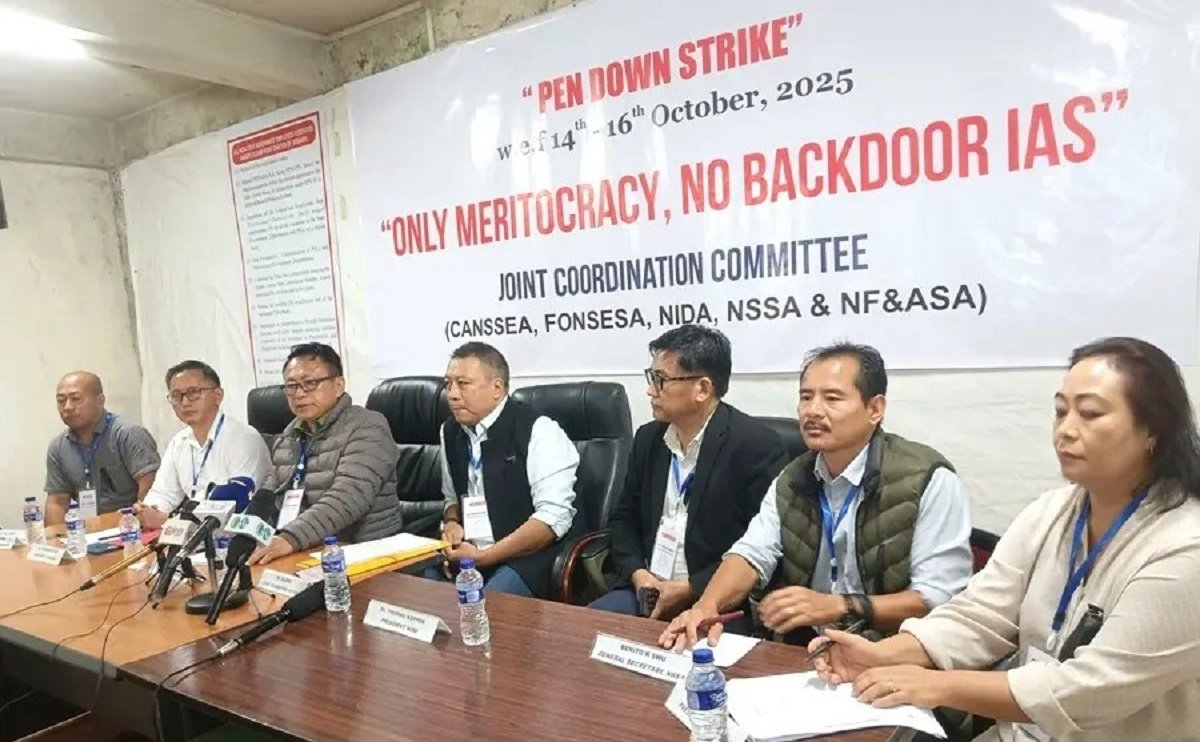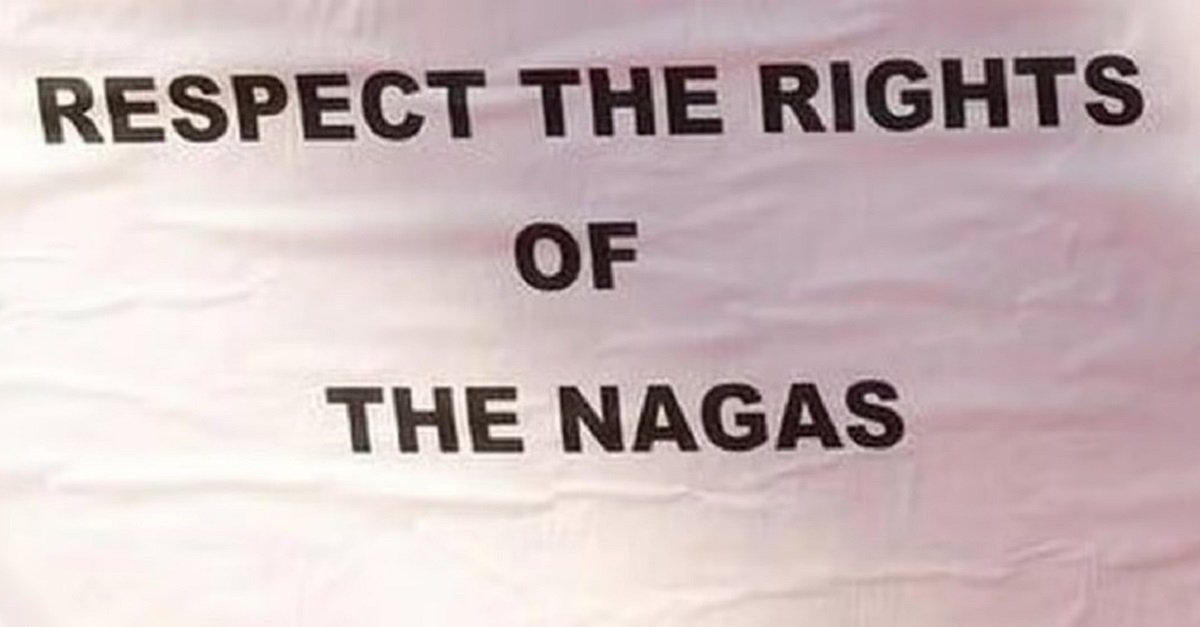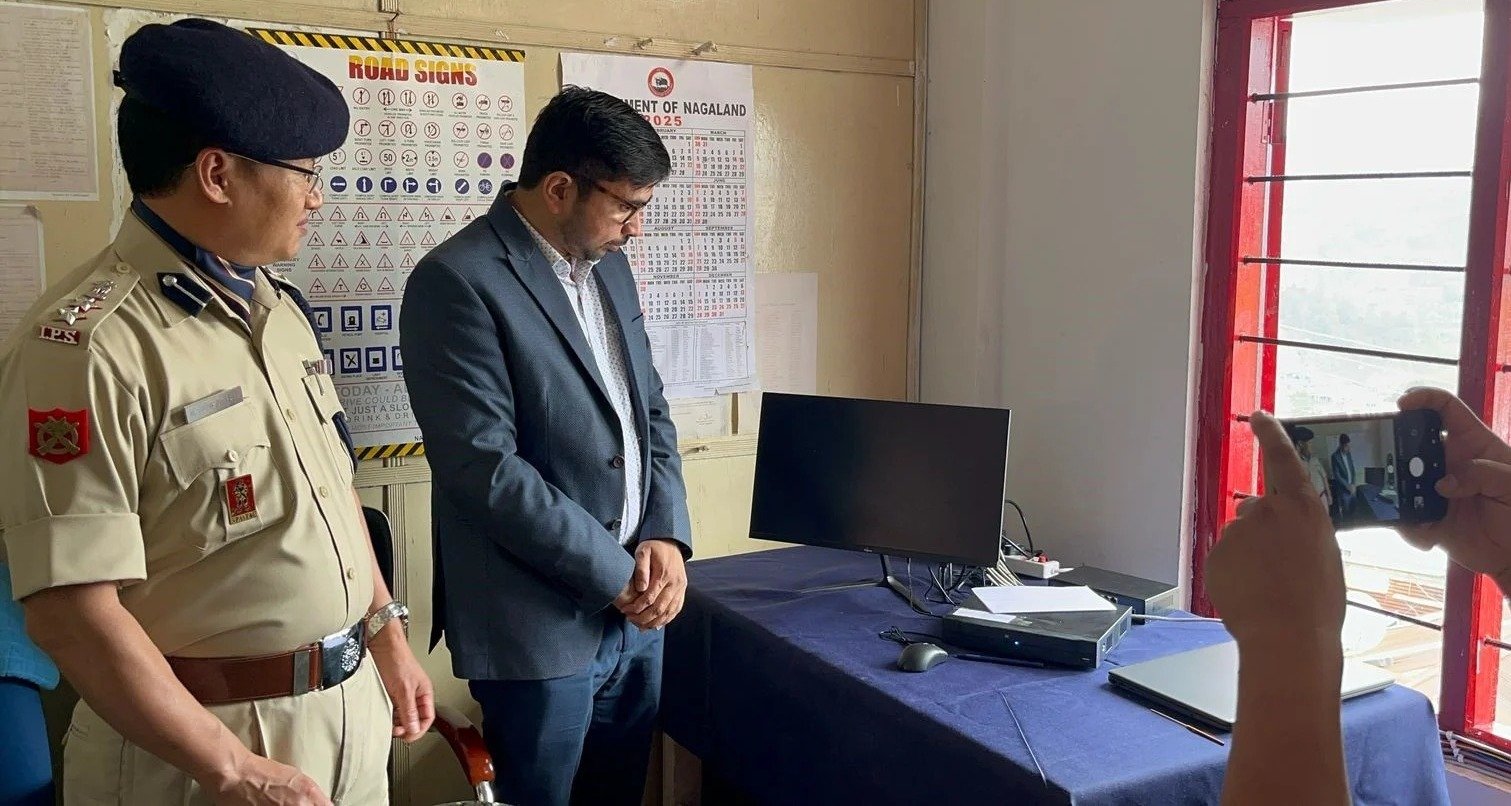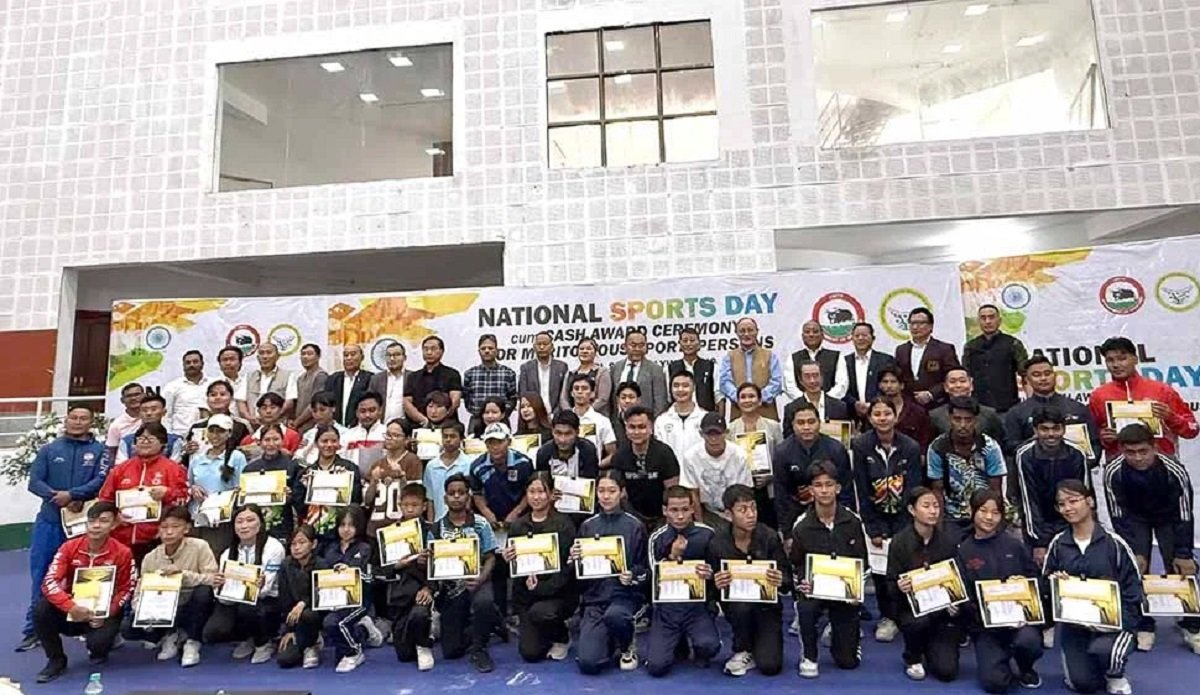The Joint Coordination Committee (JCC) on IAS Induction, a coalition of several government service associations in Nagaland, has accused the state government of serious procedural lapses in the recent IAS induction process. The committee has demanded the immediate cancellation of the final panel list, alleging that the selection process was manipulated to favour an ineligible candidate.
The JCC, which comprises the Confederation of All Nagaland State Services Employees Association (CANSSEA), Federation of Nagaland State Engineers Service Association (FONSESA), Nagaland In-Service Doctors’ Association (NIDA), Nagaland Secretariat Service Association (NSSA), and Nagaland Finance & Accounts Service Association (NF&ASA), issued a detailed statement through its Media Cell highlighting multiple procedural violations.
According to the JCC, during a meeting with the Cabinet Sub-Committee on IAS Induction held on October 20, several “disconcerting facts” were brought to the government’s attention to ensure transparency and lawful decision-making by the state cabinet. The committee said that instead of addressing the irregularities, the government chose to overlook critical procedural errors.
The controversy stems from two key vacancy circulars—dated July 6, 2020, and March 10, 2025—which governed the IAS induction process in the state. The JCC pointed out that the government itself had acknowledged procedural lapses in both circulars. Despite this admission, the lapses were later ratified by the cabinet on March 27, 2025, two days after the March 10 circular had already been withdrawn and a day after the application deadline had expired.
The committee argued that the July 6, 2020 circular had previously served as the legitimate basis for the induction of a Non-State Civil Service (Non-SCS) officer into the IAS without any objection from either the Union Public Service Commission (UPSC) or the Department of Personnel and Training (DoPT). The JCC maintained that the circular was legally sound, aligning with the Supreme Court’s judgment in Civil Appeal Nos. 4426–4466 of 2023, which allows executive instructions to supplement existing rules where ambiguities exist.
However, the JCC alleged that the withdrawal of the March 10, 2025 circular and the issuance of a new circular on April 24, 2025, under the pretext of “correcting procedural lapses,” was designed to facilitate the inclusion of a Non-NPSC officer in the final IAS panel. This, according to the JCC, violated established rules and undermined the fairness of the recruitment process.
The committee further claimed that the Non-NPSC officer in question had originally applied under the March 10 circular, which explicitly restricted eligibility to officers recruited through the Nagaland Public Service Commission (NPSC). “The question now is — why was the application accepted when the applicant was not eligible under the stated circular?” the JCC asked in its statement, calling it a clear breach of recruitment norms.
Adding to the confusion, the JCC said that after the withdrawal of the March 10 circular, no fresh applications were received under the April 24 notification, and earlier applicants did not resubmit their forms as required by the new guidelines. “When no new application was received under the new circular, on what basis did the Screening Committee finalise the panel list?” the JCC questioned, terming the entire process “procedurally invalid and legally untenable.”
The committee also cited the DoPT Office Memorandum dated October 7, 2020, which explicitly states that appointments made without following due process or involving ineligible candidates are “illegal” and cannot confer legitimate status upon such individuals. Based on this directive, the JCC asserted that the current IAS panel list stands invalid in law.
The JCC accused the authorities of “custom-making every step to accommodate a particular candidate”, alleging that the sequence of events was deliberately orchestrated to ensure the selection of one specific Non-NPSC officer. It warned that allowing such irregularities to stand would set a dangerous precedent for future IAS inductions and erode public trust in the administrative system.




